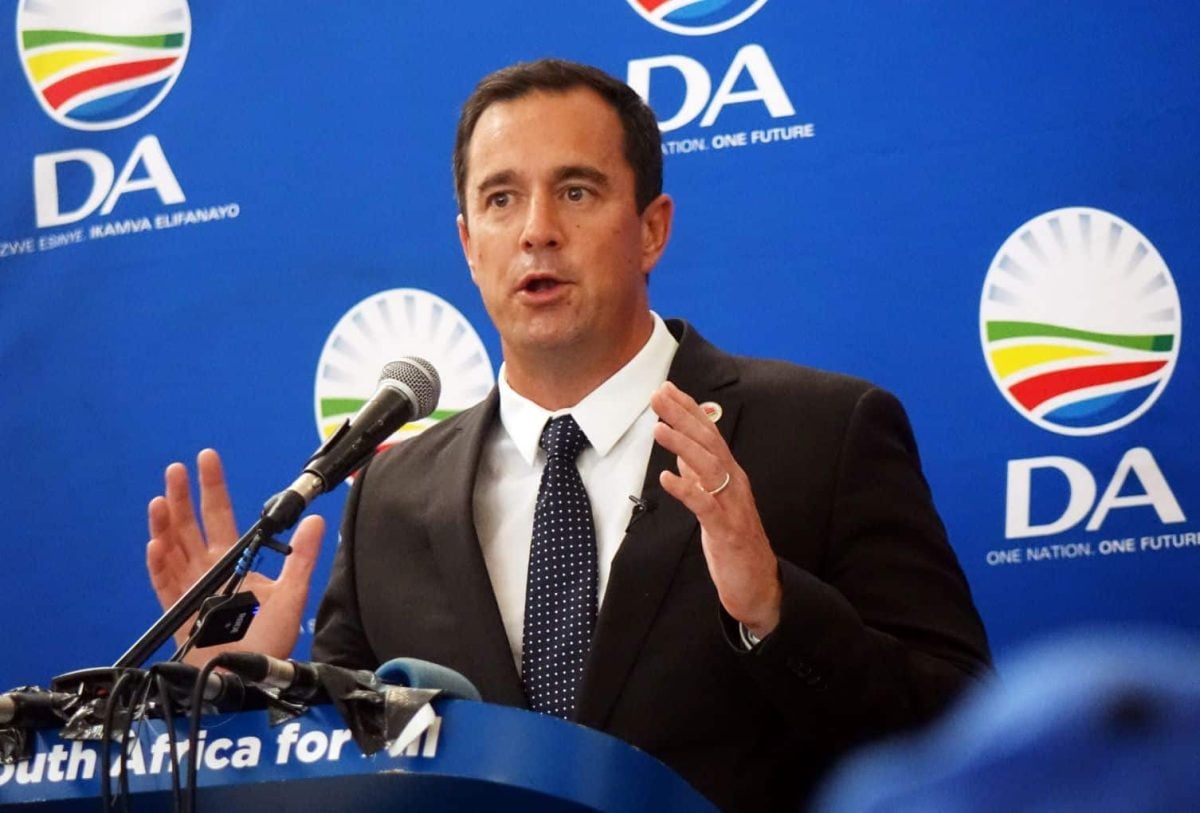CAPE TOWN, South Africa, (Reuters) – The African National Congress and its largest rival, the white-led, pro-business Democratic Alliance, agreed today to work together in South Africa’s new government of national unity, a step change after 30 years of ANC majority rule.
Once unthinkable, the deal between two sharply antagonistic parties is the most momentous political shift in South Africa since Nelson Mandela led the ANC to victory in the 1994 elections that marked the end of apartheid.
“Today, South Africa is a better country than it was yesterday. For the first time since 1994, we’ve embarked on a peaceful and democratic transfer of power to a new government that will be different from the previous one,” DA leader John Steenhuisen said in a televised address.
“From today, the DA will co-govern the Republic of South Africa in a spirit of unity and collaboration,” he said, adding that multi-party government was the “new normal”.
The ANC lost its majority for the first time in an election on May 29 and has spent two weeks locked in intensive behind-the-scenes talks with other parties, which came down to the wire on Friday morning as the new parliament was convening.
The DA’s entry into national government is a big moment for a country still processing the legacy of the racist colonial and apartheid regimes. The party has struggled to shake off its image as a defender of rich white people and convince a broad spectrum of South Africans that it reflects their aspirations.
Two smaller parties, the socially conservative Inkatha Freedom Party and the right-wing Patriotic Alliance, will also take part in the unity government, they said.
“Today marks the beginning of a new era where we put our differences aside and unite for the betterment of all South Africans,” said Sihle Zikalala, a member of the ANC’s governing body, in a post on X.
Meeting in a Cape Town convention centre because its permanent home was damaged by fire in 2022, the newly elected National Assembly began proceedings with the swearing-in of lawmakers. The chamber was then due to elect its speaker and deputy speaker, and the country’s president.
President Cyril Ramaphosa, the 71-year-old ANC leader, is expected to win a new term in office with support from the other parties in the unity government pact.
A DA source said the party would receive the post of deputy speaker of the National Assembly as part of the deal.
Long seen as unbeatable in national elections, the ANC lost support in recent years as voters wearied of persistently high levels of poverty, inequality and crime, rolling power cuts and corruption in party ranks.
The ANC won 159 of 400 seats in the National Assembly, while the DA got 87. The populist uMkhonto we Sizwe (MK) party led by former President Jacob Zuma has 58, the hard-left Economic Freedom Fighters 39 and the Inkatha Freedom Party 17.
The ANC’s central dilemma since the election has been whether to work with the DA, which investors like because of its free-market policies but is unpopular with ANC voters who see it as a defender of the privileged white minority’s interests.
The inclusion of the IFP, with its ethnic Zulu base, may help sweeten the DA pill for ANC voters. The Patriotic Alliance draws its support from the coloured (mixed-race) community.
The News24 website published details from a draft statement of intent it said had been circulated to party negotiators by ANC Secretary-General Fikile Mbalula. Reuters saw the document but could not immediately confirm its authenticity.
Among the “basic minimum programme of priorities” outlined in the document were rapid, inclusive and sustainable economic growth, the promotion of fixed capital investment and industrialisation, job creation, land reform, infrastructure development, structural reforms and fiscal sustainability.
London-based research firm Capital Economics said in a note that the prospect of a coalition involving the ANC and DA was being well received by investors because there was expected to be policy continuity or an acceleration of reforms.
It said another reason was that the EFF and MK, which it said had set out “radical agendas, including rapid land redistribution, widespread nationalisations and increased welfare support”, would be excluded from policymaking.
Zuma’s MK, new to the political scene, came a strong third in the election but alleged it was robbed of victory by vote-rigging, and is boycotting the new parliament.
The Constitutional Court rejected MK’s application to stop parliament sitting on grounds of fraud, saying it had no merit. The Independent Electoral Commission said the election was free and fair and other parties have accepted the results.









